Shared Vs Cloud Hosting-Finding Best Plan For You [2024]
You will need web hosting if you want to put your site on the internet. But how do you pick the right hosting service for your business? How does cloud hosting differ from shared hosting?
There are a lot of options available when it comes to web hosting. The beginning is a confusing place, so don’t be discouraged if you’re confused.
In the following section, we compare cloud hosting services to shared hosting services. Both of these are popular hosting options.
No one choice is right for everyone. The best choice will depend on the needs of your website.
Let’s dive in!
Affiliate Disclosure: This article contains affiliate links (not every link). That means if you purchase anything using the links. I will get a small commission that will help me to keep this website alive and publish helpful content. Don’t worry! You won’t be charged any extra fees for that. So happy purchasing! ❤️❤️
What is Shared Hosting Vs Cloud Hosting?
Let’s find out the key offerings of the shared hosting vs Cloud hosting provider from its definition.
1. Shared Hosting

The cheapest, most popular, and most widely available type of hosting solution is shared hosting. This service is often offered for $9.99 or less for a month.
A single physical server is divided up among multiple users in shared hosting server. A certain amount of bandwidth will be shared among all users.
It is possible, however, for users to set up a limitless number of websites on their accounts. As a result, the server that is being split up between multiple accounts can sometimes end up costing thousands of sites!
If another site on the server is taking too much of the server’s resources, then your site may perform poorly. The majority of web hosts generally take steps to minimize the impact of these effects.
If you are planning on having a very small site, shared hosting may be a good choice for you, as cloud hosting is better for larger sites.
If you are looking for the best shared hosting out there, you can try Dreamhost. It comes with many hosting solutions including a dedicated hosting server.
Read also:
2. Cloud Hosting

Are you curious about cloud computing? You can use multiple servers to manage your site, rather than having your site situated on one server. The demand for cloud services is therefore high.
The main benefit of cloud hosting is that it allows for unlimited expansion and is essential for sites with a lot of traffic.
A cloud-hosted server is also more protected from being overloaded. Cloud dedicated servers are switched between if one becomes overloaded.

You can try their free trial. Don’t worry! You don’t need a credit card to try the Cloudways free trial for you.
Advantages of Shared Hosting Vs Cloud Hosting
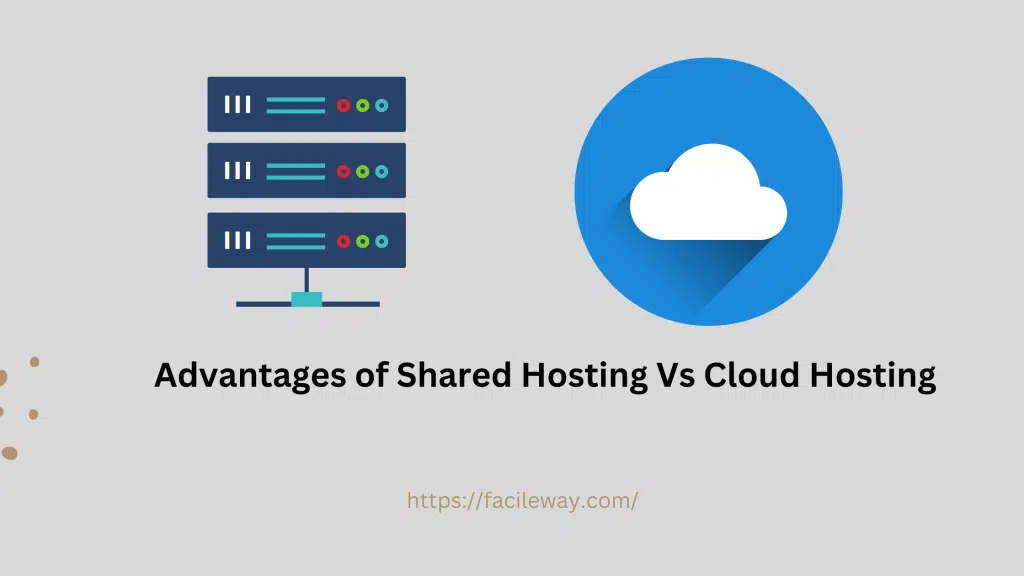
If you wanna have an idea about Shared Hosting Vs Cloud hosting, you must know what are the merits and demerits of the web hosting plan.
Advantages of Shared Hosting
Shared hosting offers numerous benefits. Here are some of the basic features of shared hosting:
1. It’s less expensive
The most cost-effective hosting solution is shared hosting. Many people contribute to the costs of the server, so the hosting company’s costs are shared between them.
You can expect to pay over $100 for the cheapest plan, while the most basic plan costs around $30- $100 a year for premium plans with unmetered disk space, unlimited bandwidth, and unlimited websites.
2. It’s flexible
If an online venture becomes successful, it can easily upgrade to a more advanced plan without hassle.
3. Self-management is easy
Setting up shared hosting is simple and straightforward. You can typically manage your website through your website provider’s control panel.
In this simplified user interface, you can perform all administrative tasks and monitor the server remotely.
4. Multiple domains are supported
Multiple websites can be installed in your user directory; all you need to do is ensure the domains you buy are linked to them.
It is not uncommon for a person to have different domains for their personal website, their hobbyist blog, and their business website. This is a perfect application for shared hosting.
Advantages of Cloud Hosting
The use of cloud hosting has been widely accepted for the past eight years, yet there is still confusion and uncertainty about its pros and cons among some possible users. Let’s have a look:
1. Flexible pricing
When you pay for hosting, regardless of how much you use, you still pay a monthly fee. You pay only for what you use with cloud hosting.
For example, if your post goes viral, or if your site receives an unusual amount of traffic, you don’t have to update the package entirely.
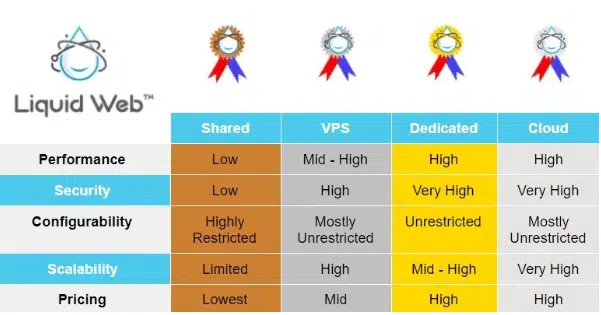
When traffic levels surge, scale up your resources and scale them back down when traffic levels fall.
Your pricing is based on the total amount of server resources you use, rather than having to pay the same amount regardless of the number of resources you use.
2. Scalability is easy
You can easily scale your dedicated server with cloud hosting. In most cloud-dedicated servers, you have access to a site management dashboard that lets you monitor your site’s performance in real-time.
You don’t have to wait for approval from your hosting providers if you want to scale up or down a dedicated server on the fly.
3. Redundant servers
Your site lives on a single server with most types of hosting. It would be impossible to get back online if something happened to this server until it was fixed.
A site backup will automatically take over your existing site when your hosting is redundant. However, not all redundancies are created equal. Using cloud hosting, your host can load an instant version of your live website at the same time.
4. High availability and uptime
Your site’s uptime will be impacted by the physical environment in which it is hosted. Your site will go offline if it goes offline. In any case, your website’s downtime can be reduced if you’re utilizing a CDN.
Hosted on the cloud, uptime is built into its structure. In the event that one server goes down or is experiencing technical difficulties, your site can simply be transferred to another one if the other server is available.
You won’t lose access to your site when traffic surges unexpectedly if your site can scale on demand.
5. Fast server setup
With cloud hosting, you can deploy servers within minutes. In most cases, setting up your web server might take some time unless you sign up for an entry-level shared hosting package.
You may have to wait for your site to go live if you need your site online quickly for example, or if you are moving your website to a new host.
6. Hardware Safety
A cloud-based hosting service isolates your site from any physical server issues, such as hacking, hardware failures, or system overloads.
If a server is compromised or experiencing an issue, simply use the physical resources of another server – all without any downtime.
7. Increased website speed and performance
You can get blazing-fast speeds with most cloud-dedicated servers. The benefit of cloud hosting is that, in addition to increasing your site’s capacity easily, it allows for load balancing between multiple servers, which in turn can help to reduce the strain on a single server.
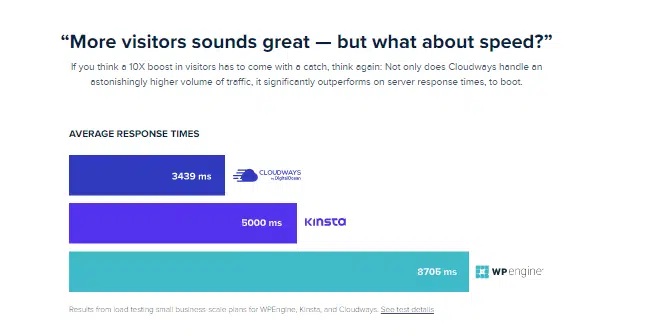
It’s a no-brainer that your website speed is also affected by the server hardware foundation, so make sure the cloud host you select has multiple caching layers, high-quality hardware, and low-density servers.
8. Ideal for sites with scalable traffic
If your traffic fluctuates, then it’s going to be difficult to find a host who’ll offer you the best value for your money.
You can easily scale up and down your dedicated server with a cloud hosting provider. This level of scalability is difficult to achieve with any other type of hosting.
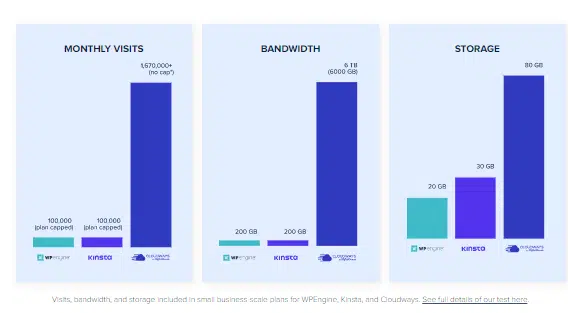
9. Simple Server Monitoring Dashboard
In the past, cloud servers were difficult to manage and scalable, and you needed technical expertise to do so.
Today’s cloud hosting lets you monitor your account and scale it as needed through an easy-to-use interface. It is not necessary for you to have a technical background in order to run your cloud server.
10. Reduce your overall environmental impact
A cloud hosting solution could be ideal if you are considering sharing hosting, but would also like to reduce your environmental impact.
You use fewer overall data centres and only use the server resources you need at that moment if you are using the cloud. When you streamline your data and resource usage, you’re less likely to cause environmental damage.
Disadvantages of Shared Hosting Vs Cloud Hosting
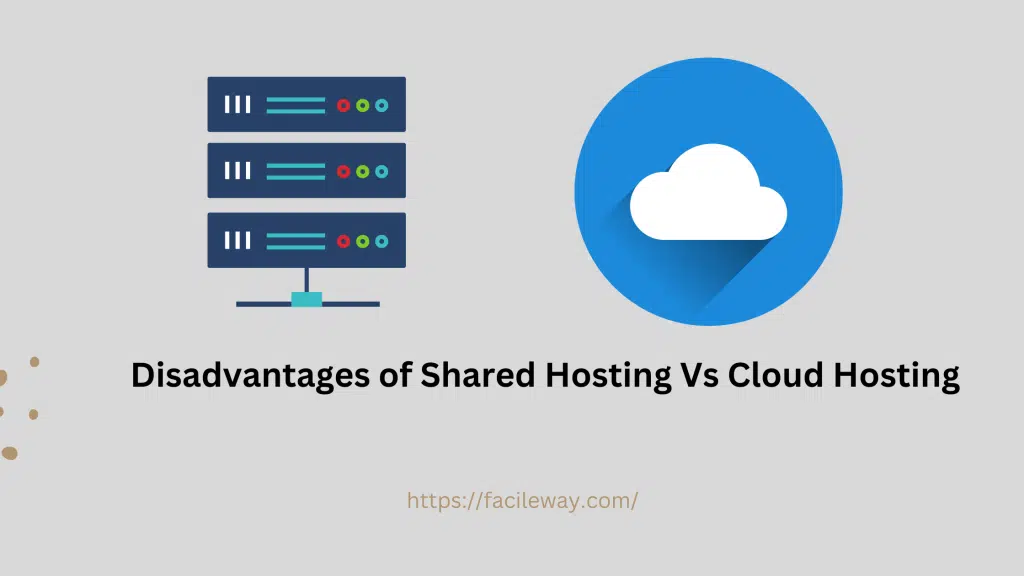
There are some major demerits of shared web hosting. Let’s see what are the pros and cons of shared vs cloud hosting.
Disadvantages of Shared Hosting
1. Limited Resources Availability
In shared hosting, you get to use very limited resources, as you have probably gathered by now. If you attempt to add resource-intensive functionality to your website, you may run into problems.
2. Slowness
A common complaint we hear from small businesses is their websites seem sluggish and they often attribute this to their websites. However, it is primarily due to the lack of resources that shared hosting offers that prevent your website from performing at its maximum level.
3. High downtime
A shared hosting company will kill processes when a website starts to use too many resources in order to prevent a single website from overthrowing the server.
If suddenly your website becomes popular (say, it gets mentioned on some other website, or it is talked about by some influential person) and starts getting a lot of traffic, it can actually suffer!
The shared hosting web host will notify you that your website is using a lot of resources, and it might even be suspended.
It’s ironic you made the website anticipate that it would become popular, but it’s suspended when it does as if being popular was a crime.
4. Vulnerable to Security Issues
You should avoid shared hosting because of this disadvantage, if for no other reason than this. When a website gets hacked on a server, other websites are also vulnerable.
Every website on a server goes down if it is hacked. As a result, your website is at risk in a shared hosting environment (to be fair, shared hosting companies do try to isolate sites, but this is not 100% isolation).
5. Support that is inadequate
In spite of claims of easy support, you might not be sure whether the support you receive is knowledgeable enough. It might not be possible for them to help you if your website has a problem.
It will be restarted if it goes down. Asking why the prices keep going down might make them clueless.

Generally, you’ll find that you’re not dealing with a WordPress expert, but rather someone who has read from a prepared FAQ.
A bigger problem will almost certainly require expert help from outside, which can cost you hundreds of dollars. A major disadvantage of shared hosting is the lack of good support.
Disadvantages of Cloud Hosting
1. No longer in control
When you move services to the cloud, you hand over your data and information. A company with an in-house IT staff will not be able to handle issues on its own. You have to be very picky when you are choosing cloud hosting.
2. May not get all the features
Cloud services are not all the same. As a result, you may not receive all the features or customization you want from some cloud providers. Ensure you know what your cloud service provider offers before signing up.
3. Vendor Lock-In
One of the disadvantages of cloud computing can be vendor mismatches. When moving services to another vendor, organizations may encounter difficulties.
Incorrect handling of this process may lead to unnecessary vulnerabilities in data. Data migration from one vendor to another is the responsibility of a good cloud services provider.
Recommendations
Now you know which web hosting plan will be the perfect choice for your website. If you wanna try shared hosting, you can go with DreamHost.
You will get a 90-day money-back guarantee with a free domain and free SSL only at $2.49/Month.
But if you are preferring cloud hosting, go with CloudWays. They will set up your website for free and you will experience super-fast web surfing.
If you use FacileWay as a coupon code, you will get a 20% discount on the first month. CloudWays also offer a free trial for 3 days. You won’t need any credit to try their free trial.
Frequently Asked Questions
1. What is shared hosting?
Shared hosting is a type of hosting where multiple websites are hosted on the same server and share their resources such as CPU, RAM, and storage.
2. What is cloud hosting?
Cloud hosting is a type of hosting where your website is hosted on a virtual server that is created by combining resources from multiple physical servers. This allows for greater scalability, flexibility, and redundancy.
3. What are the advantages of shared hosting?
Shared hosting is generally cheaper and easier to manage than other types of hosting. It’s a good choice for small websites with low traffic and limited resource requirements.
4. What are the disadvantages of shared hosting?
Since multiple websites share the same resources, if one website on the server experiences a spike in traffic, it can negatively impact the performance of all other websites on the server. Additionally, you have limited control over the server and may not be able to install certain software or make specific configuration changes.
5. What are the advantages of cloud hosting?
Cloud hosting provides greater scalability, flexibility, and redundancy compared to shared hosting. You can easily scale your resources up or down as needed and your website is less likely to experience downtime due to server issues.
6. What are the disadvantages of cloud hosting?
Cloud hosting is generally more expensive than shared hosting and can be more complex to manage. Additionally, if you’re not familiar with cloud technology, it may take some time to learn how to set up and manage your cloud hosting environment.
7. Which one should I choose – shared hosting or cloud hosting?
It depends on your specific needs and budget. If you have a small website with low traffic and limited resource requirements, shared hosting may be a good choice. If you have a large website or need more flexibility and scalability, cloud hosting may be a better option.
What Are the Differences Between Shared and Managed WordPress Hosting, and Which One is Best for My Needs?
If you are deciding between shared vs managed hosting for your WordPress site, it’s important to understand the differences. Shared hosting is cost-effective but offers limited resources, while managed hosting provides dedicated support and performance optimization. Consider your budget and technical expertise to choose the best option for your needs.
Final Words: Shared Hosting Vs Cloud Hosting
If your website has growing traffic that needs always some extra resources, Cloud hosting is the best option. But it’s okay to go with the shared hosting plan if you are just getting started.
I hope you have loved this article about shared Hosting vs cloud hosting. Please feel free to share with your friends and comment below, If I have missed anything.


![Best cPanel Web Hosting In 2024 [Fastest Hosting Spotted]](https://facileway.com/wp-content/uploads/2022/01/Best-cPanel-Web-Hosting-768x432.png.webp)
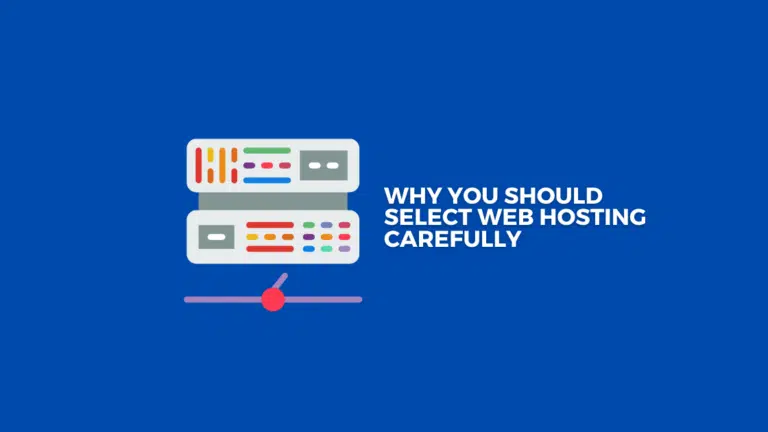


![What are the Best Cheap Web Hosting Services? [Get Coupon]](https://facileway.com/wp-content/uploads/2019/05/Best-Cheap-Web-Hosting-You-Should-Try-in-2020-768x432.png.webp)

Nice review here Sayem. In this day and age, whether one goes with shared or cloud hosting, no one has any excuse not to invest in at least a solid hosting solution. We all have access to more than enough rich options guaranteed to be up and fast most of the time. The key is to invest in a domain and hosting to do blogging the right way. Pay up to play up.
Ryan
Thanks for your inputs brother. Yeah, you are right! the best web hosting comes with the best pay!